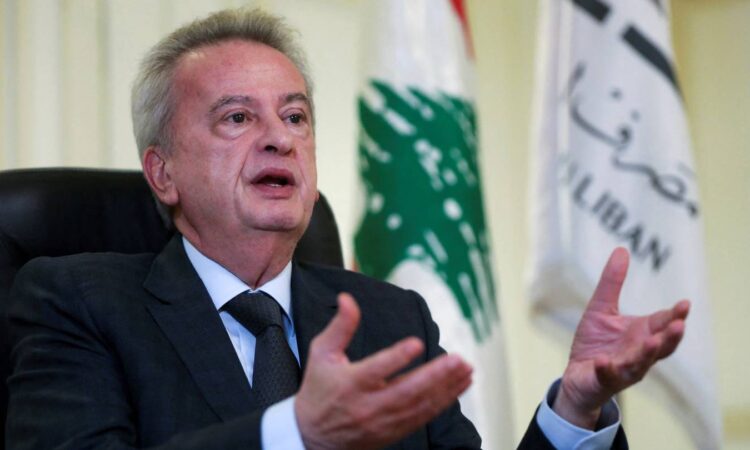
Lebanon’s Central Bank will adopt an exchange rate for dollar withdrawals that is closer to the crashing currency’s real market value, central bank governor Riad Salameh said in a televised interview on Monday.
“We are in the process of unifying the exchange rates”, Mr Salameh told Al Hurra TV — a requirement to attain access to billions of dollars from international lenders.
The Lebanese pound has been officially pegged at 1,507 to the greenback for the past 25 years, but this rate no longer represents reality as the pound’s value has fallen by more than 95 per cent since the country’s economy collapsed in 2019.
The central bank would have just two rates, he said, the 15,000 and the Sayrafa rate, the official exchange rate platform managed by the Central Bank, where the Lebanese pound is currently trading at about 30,000 to the dollar.
After the financial crisis, banks imposed draconian withdrawal limits and essentially froze accounts, leaving depositors unable to take out more than a capped part of their frozen funds at a rate of 8,000 or 12,000 to the dollar — less than a quarter of the Lebanese pound’s market value, currently hovering at about 40,000 to the dollar.
Depositors will now be able to access their funds at the exchange rate of 15,000 against the greenback from February 1.
It comes after the Ministry of Finance said it will introduce exchange rates closer to the currency’s market value for taxes and customs duties, which are still based on the official exchange rate of 1,507 pounds to the US dollar.
The move has been touted by authorities as a step towards the reforms requested by the IMF for billions of dollars in loans to lift the country out of its financial woes.
But experts said the new rate did not replace the country’s obsolete peg, which is still used for loan payments and accounting purposes.
“Abandoning the official rate would mean officially acknowledging the financial losses and the banking sector’s insolvency as most of the liabilities, which are dollars, are not backed by assets in hard currency”, FFA Private Bank Group chief executive Jean Riachi said.
He said the decision should come as part of a deal with the IMF, with which Lebanon signed a preliminary agreement in April, and a long-awaited bank restructuring law to reorganise the banking sector, which has still to be voted on.
In September, the IMF said Lebanon was making “very slow” progress to implement these sweeping reforms the country had pledged to enact.
Updated: November 22, 2022, 1:26 PM



